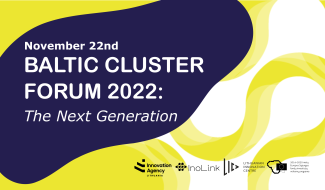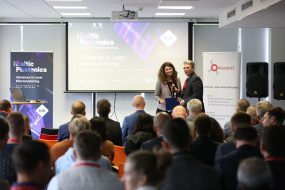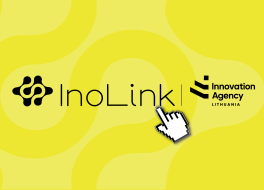Direction – Cooperation and Clusterization of Companies

Engineering industry in Europe is the engine of the EU economy, and Lithuanian companies play an important role here. Our industry creates most advanced technologies as well as products and solutions that meet clients’ expectations. Branch engineers solve current and future global issues, such as sustainable energy and climate change, automation, smart cities, laboratory equipment, etc.
European engineering companies produce more than 75% of all European Union exports. 80% of all European scientific research and experimental development investments are made in the industry, more than 10 million people work for more than 130,000 companies, and the turnover amounts to 2,000 billion euro.
The Engineering Industries Association of Lithuania LINPRA unites companies, the turnover of which accounts for 23% of the country’s economy. The sector is the largest processing industry in terms of the GDP (the GDP by production approach of 2013 at constant prices is 1,458 million euro, and production excluding VAT and excise of that time is 3,100 million euro).
Competition between Lithuanian engineering companies in the domestic market is almost non-existent, our competitors and partners are foreign companies. Therefore, for the past 8-10 years, collaboration and cooperation between companies and the integration of people have been of great relevance, and clusters are the best form of cooperation. Lithuanian companies that obtained EU funding via a program coordinated by the Ministry of Economy during the EU funding period 2007-2014 have become stronger. They have become an integral part of the EU production chain, and a number of productive clusters have been established. In order to keep the Lithuanian engineering industry innovative and competitive in European and world markets, it is essential to maintain and gradually strengthen existing positions. We have to make companies that export their production aware of the creation of value added chains of different sub-sectors. They need to get acquainted with each other’s activities, and to promote employee cooperation for creation (manufacturing) of products and solutions. Cooperation of companies helps implement larger projects, create products of a higher added value, and sell them abroad easier.
The LINPRA association is a member of the European Engineering Industries Association ORGALIME, the Council of European Employers of the Metal, Engineering and Technology-based industries CEEMET and European Factories of the Future Research Association EFFRA (a representative of the scientific community in the scientific research and experimental development field). Unsurprisingly, for the past few years, influenced by the European Union (EU) guidelines, the main activities of the LINPRA Association have been:
- export development;
- encouragement of synergy in the scientific research, experimental development and innovation activity between educational institutions and businesses;
- strengthening youth, scientific and academic communities, improving the quality of teaching, and encouraging Lithuanian youth to choose a career in engineering.
The Association pays a lot of attention to common work of clusters’ companies, organizing exhibitions, trainings, research, assisting in working with youth, scientific and academic communities. We put effort into empowerment of these social groups, and contribute to the improvement of various fields of education.
The work already carried out inspires to continue our work. However, not everything has been done yet. There are many mature manufacturing clusters, such as Baltic Automotive Components Cluster, Laser Cluster, Lithuanian Plastics Cluster, etc. Companies that are members of these clusters have succeeded individually. Their production is being sold and valued by customers. Unfortunately, joint initiatives are not that successful. Companies and their employees lack experience in cooperation while working with specialists from other companies. Joint marketing programs are ongoing, employees are learning together, people are involved in product development, and procurement of services and raw materials is carried out jointly. I believe that not enough attention is being paid to these issues. Competition for specialists and clients between cluster members is common, and it leads to disagreements. Therefore, reconciliation is needed. Eventually, such an experience becomes an obstacle to creating new joint businesses, finding new markets, or starting selling new, jointly developed products in current markets.
Cluster activity is equivalent to interconnectedness. In order to work in such a way, strong personal and organizational leadership skills are needed. Companies have to prepare their employees, thus, special training is essential; it is also necessary to develop relations with other member companies and to uphold mutual respect.



